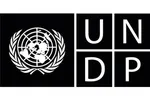Monitoring protected areas in Papua New Guinea
By working with local communities to record information, Lukim Gather helps monitor the environment in protected areas.
Papua New Guinea
Purpose
To support local populations to manage protected areas
Approach
A rapid data reporting system that helps the government respond to ecological and social challenges
Partners
The United Nations Development Programme (UNDP) and the PNG Conservation and Environment Protection Authority (CEPA)
Papua New Guinea is home to around 7% of the world’s biodiversity, including tropical rainforest and marine systems. But its protected areas are threatened by logging, mining, industrial agriculture and climate change. Traditional owners of these protected areas also face new challenges to their livelihoods. By accurately recording change, we can work with people to respond to these challenges.
Integrating traditional knowledge with sustainability indicators
Our project in Papua New Guinea helps local communities report issues and changes in the protected areas around them. We’re developing an innovative data reporting system, using mobile phones to collect socio-ecological indicators, alongside pictures and GPS coordinates. Actionable data from the system is sent to the Papua New Guinea government, improving response to ecological and social challenges. With better conservation of biological heritage, we can create a more sustainable environment.
The Lukim Gather application is able to function outside of mobile cell range in remote areas and allows users to collect localised data based on annual environmental and livelihood changes observed by protected area communities. The data automatically uploads to a central server when users re-enter mobile phone coverage, allowing rapid collection of key site data while avoiding costly and lengthy transportation to Port Moresby or user input errors. A second function of the application allows users to quickly and anonymously report serious environmental incidents including illicit activities such as illegal logging.



